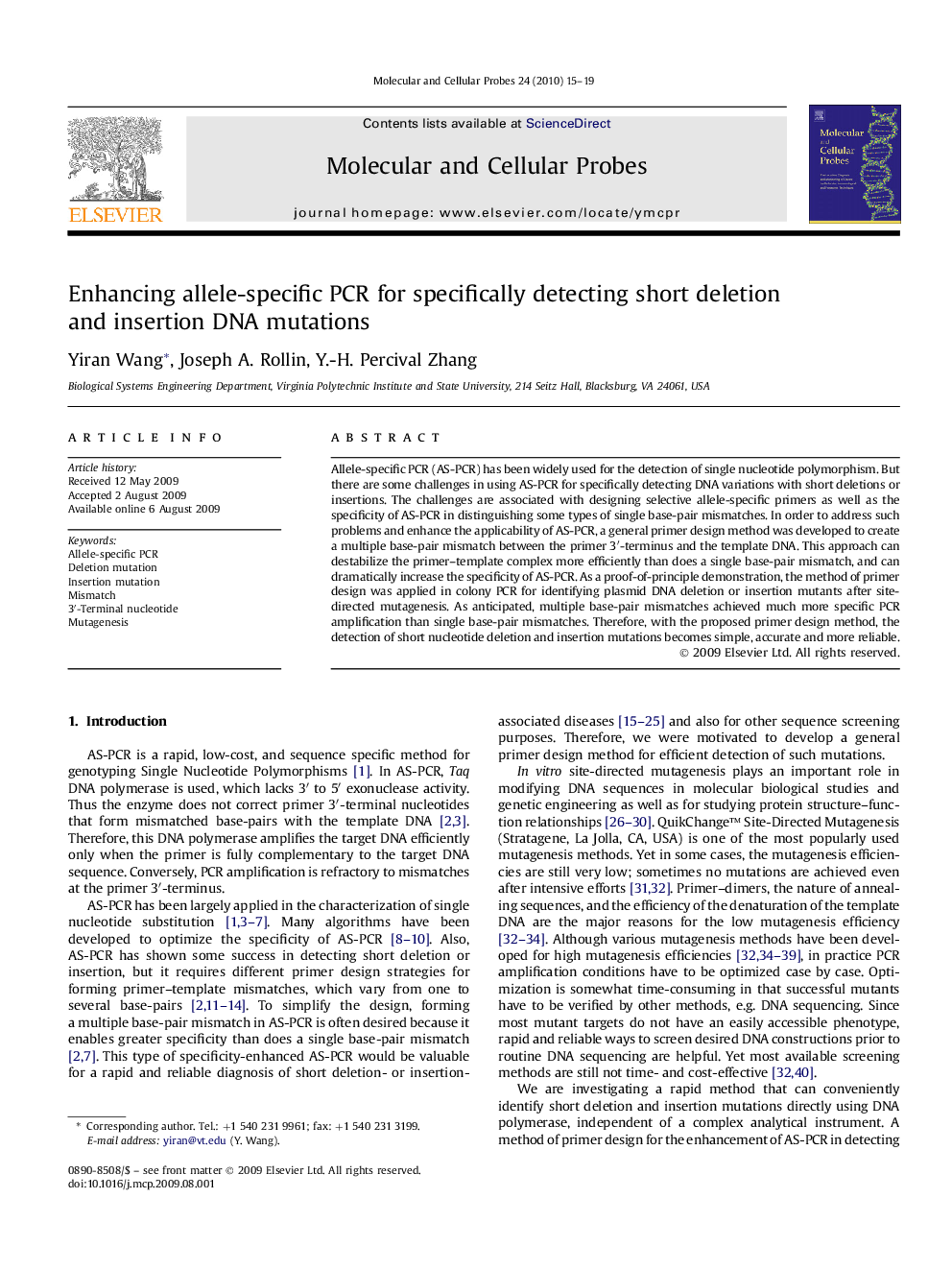| Article ID | Journal | Published Year | Pages | File Type |
|---|---|---|---|---|
| 2200007 | Molecular and Cellular Probes | 2010 | 5 Pages |
Allele-specific PCR (AS-PCR) has been widely used for the detection of single nucleotide polymorphism. But there are some challenges in using AS-PCR for specifically detecting DNA variations with short deletions or insertions. The challenges are associated with designing selective allele-specific primers as well as the specificity of AS-PCR in distinguishing some types of single base-pair mismatches. In order to address such problems and enhance the applicability of AS-PCR, a general primer design method was developed to create a multiple base-pair mismatch between the primer 3′-terminus and the template DNA. This approach can destabilize the primer–template complex more efficiently than does a single base-pair mismatch, and can dramatically increase the specificity of AS-PCR. As a proof-of-principle demonstration, the method of primer design was applied in colony PCR for identifying plasmid DNA deletion or insertion mutants after site-directed mutagenesis. As anticipated, multiple base-pair mismatches achieved much more specific PCR amplification than single base-pair mismatches. Therefore, with the proposed primer design method, the detection of short nucleotide deletion and insertion mutations becomes simple, accurate and more reliable.
